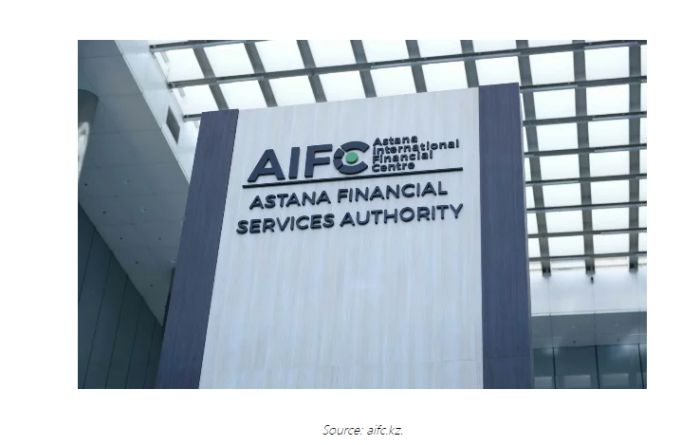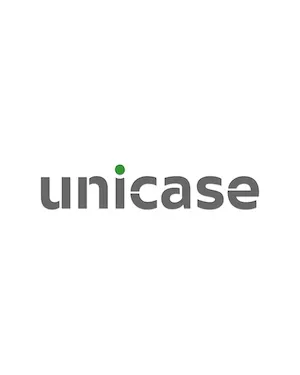In light of the global wide spreading and active use of cryptocurrencies, referred to as "digital assets", local (Kazakhstan) legislator acknowledges that introducing effective legal frameworks is essential. Adopting the Law on Digital Assets1marked a pivotal milestone, prompting the development of supplementary legal acts to delineate implementation procedures. Kazakhstan is committed to fostering a business-friendly environment, aligning with a strategic goal of enhancing competitiveness among other states.
Kazakhstan has implemented comprehensive regulations for digital assets, focusing on AML/CFT measures, permitting processes, and detailed guidelines for stakeholders. These efforts aim to create a secure environment, classify clients, and set strict standards encouraging accountable participation in the digital asset industry.
Financial monitoring and AML/CFT
The AML/CFT Regulations for digital asset activities have been specifically approved as part of the Anti-Money Laundering measures2. Those involved in digital asset activities, including clients and related transactions, are subject to financial monitoring.3
Key indicators have been established to prevent criminal use of digital assets, such as depositing assets with an exchange and promptly excluding them, exchanging assets for fiat currency at a loss, and using funds from unregistered or improperly licensed cryptocurrency exchanges4.
Notably, violations of these AML/CFT requirements incur liability under the Code on Administrative Offences5 and Criminal Code6.
Permit for the Issuing and Circulating of Secured Digital Assets
Under Kazakhstani legislation, acquiring a permit is mandatory for issuing and circulating secured digital assets. This permit, outlined by the Permission Rules7, requires individuals or legal entities to apply to the Electronic Licensing platform of the Republic of Kazakhstan (elicense.kz ).
Applicants shall possess requisite server equipment (at least 5 blockchain network nodes), an algorithm for node record verification, and documentation substantiating copyright ownership.
The Permit is granted for three years.
Provision of Information
To facilitate government inspections and preventive measures, state authorities have developed checklists for various entrepreneurial activities, including those related to digital assets, which have been integrated into the Entrepreneur Code8. These checklists have received approval for miners9 and individuals engaged in issuing and circulating secured digital assets10.
Furthermore, specific procedural requirements and documentation forms have been specified for digital asset exchanges and other stakeholders within The Astana International Financial Centre (AIFC)11.
Expanded list of Secured Digital Assets
The List of recognised secured digital assets in the Republic of Kazakhstan acknowledges two categories of digital assets within Kazakhstan: those secured by property and those secured by service12. However, Kazakhstani legislation still does not provide any regulations related to prominent cryptocurrencies like Bitcoin, Litecoin, Tether, Ethereum, etc. Meanwhile, anticipated revisions are underway within the AIFC framework.

AIFC Regulation
The Astana Financial Services Authority (AFSA) has exempted crypto exchanges and licensed providers within AFSA's Fintech Lab from seeking approval to trade digital assets featured in the "Green List" on their platforms. This list comprises sixty-seven digital asset names authorised for trading during the testing phase of Digital Asset Trading Facilities licensed within AFSA's FinTech Lab (https://orderly.myafsa.com/).
While this progresses, the AIFC is actively developing regulations for digital assets. Consequently, AFSA has initiated the Pilot Project to comply with the Constitutional Law of the Astana International Financial Centre and collaborate with state regulators 13. This venture aims to foster cooperation between crypto exchanges and second-tier banks in Kazakhstan.
To finalise the Pilot Project, among other initiatives, the AIFC released a Consultation Paper on 5 October 2023, addressing the "Rules and mechanisms of cooperation of Unbacked Digital Asset Exchanges and/or the Centre Participants authorised to carry out digital assets-related activities with second-tier bank of the Republic of Kazakhstan" (hereinafter referred to as the "Rules").
These Rules outline the definitions of Unbacked Digital Asset Exchange (or "Digital Asset Trading Facility Operator") as a participant in the Astana International Financial Centre licensed to conduct regulated operations in Operating a Digital Asset Trading Facility under the AIFC acts.
A digital Asset Service Provider is an AIFC participant licensed by AFSA to engage in regulated activities, including operating a Digital Asset Trading Facility, under the AIFC acts.
Opening of a Bank Account and Monitoring of Transactions
The Rules will oblige to the opening of bank accounts in second-tier banks within the Republic of Kazakhstan (hereinafter referred to as "Kazakhstani banks") to safeguard clients' funds in Kazakhstan Tenge (KZT) and/or foreign currency. Clients' funds must be segregated from those of Digital Asset Trading Facility Operators or Digital Asset Service Providers, maintaining distinct bank accounts.
Clients engaging with a Digital Asset Trading Facility Operator or Digital Asset Service Provider are prohibited from conducting specific transactions:
- third-party deposits and withdrawals;
- withdrawing fiat currency from the virtual account (representing a client's cash balance at a digital asset exchange) to a third party's bank account.
Furthermore, transferring funds between two distinct client bank accounts within Kazakhstani banks is permissible only upon confirmation of ownership by the client. This requirement applies when clients withdraw funds from the Digital Asset Trading Facility Operator or Digital Asset Service Provider.
Clients are obligated to furnish information regarding the source of their funds upon request by a Digital Asset Trading Facility Operator or a Digital Asset Service Provider.
These regulations also outline specific prerequisites for admitting Digital Assets to trading, encompassing document requisites, compliance with FATF guidelines, global status adherence, and other stipulated criteria.
Classification of Clients
A Digital Asset Service Provider is responsible for categorising individuals into the following segments:
- Retail Clients;
- Professional Clients,
- Market Counterparties.
Subsequently, the Digital Asset Service Provider will inform clients of their classification. This categorisation aligns with the stipulated classification criteria outlined in the relevant guidance. Importantly, an individual may fall into multiple client categories simultaneously.
Requirements for Digital Asset Service Providers and Digital Asset Trading Facilities
The Minimum capital requirements for Digital Asset Service Providers range from USD 10,000 to USD 250,000, contingent upon the nature of correspondence activities conducted.
Additionally, the minimum capital prerequisite for Digital Asset Trading Facilities is set at either (i) above USD 200,000 or (ii) equivalent to adequate working capital in fiat currency, enabling sustained operations for 12 months. This requirement aligns with realistic business forecasts encompassing diverse market conditions, including negative and positive scenarios.
Restrictions and Prohibitions
The Rules stipulate that resident legal entities of Kazakhstan are restricted from conducting operations on AIFC Digital Asset Trading Facility Operators' platforms, with exceptions granted to Kazakhstani entities engaged in digital mining, mining pools, and AIFC Participants.
Additionally, individual residents of Kazakhstan, classified as Retail Clients, are limited to investing a maximum of USD 1,000 per month across all digital assets. These Retail Clients are also barred from utilising margin trading services. However, they can receive digital asset transfers from Kazakhstani business entities via loyalty program bonuses, provided the monthly investment limit of USD 1,000 is not exceeded.
Furthermore, AIFC Participants licensed by AFSA are prohibited from advertising Initial Token Offerings among Kazakhstani residents. It's important to note that these rules are subject to discussion until the final version is ratified.
The Astana International Financial Centre approved the Rules on Digital Asset Activities (DDA) on 10 September 2023, which are set to be enforced from 1 January 2024. The DDA establishes guidelines for regulated activities concerning digital assets within the AIFC, encompassing general recommendations, internal document requirements, and other regulations.
Kazakhstan's regulatory framework for digital assets demonstrates a careful balance between fostering innovation and upholding security measures. It aims to facilitate a conducive environment for digital asset enterprises while ensuring compliance with anti-money laundering, counter-terrorism financing measures, and regulatory standards. The forthcoming Rules on Digital Asset Activities (DDA) will further refine guidelines for organisations involved in regulated activities pertaining to digital assets within the AIFC.
Through collaboration between financial institutions and digital asset platforms, coupled with stringent monitoring and control measures, Kazakhstan endeavours to encourage responsible engagement in the digital asset sphere, prioritising investor protection and regulatory adherence.
Footnotes
1. Law of the Republic of Kazakhstan "On Digital Assets" No. 193-VII dated 6 February 2023
2. Joint Order of the Chairman of the Financial Monitoring Agency of the Republic of Kazakhstan No. 20 dated 28 February 2022 and the Minister of Digital Development, Innovation and Aerospace Industry of the Republic of Kazakhstan No. 68/НҚ dated 28 February 2022
3. Chapters 4 & 5 (Ibid 2)
4. Chapter 2 (Ibid 7)
5. Article 214 of the Code of the Republic of Kazakhstan on Administrative Offences No. 235-V dated 5 July 2014
6. Article 218 of the Criminal Code of the Republic of Kazakhstan No. 226-V dated 3 July 2014
7. Order of the Minister of Digital Development, Innovation and Aerospace Industry of the Republic of Kazakhstan No. 130/НҚ dated 01 June 2023
8. Article 138.117) of the Entrepreneurial Code of the Republic of Kazakhstan No. 375-V dated 29 October 2015
9. Joint Order of the Minister of Digital Development, Innovation and Aerospace Industry of the Republic of Kazakhstan No. 164/ НҚ dated 25 April 2023 and the Minister of National Economy of the Republic of Kazakhstan No. 49 dated 26 April 2023
10. Joint Order of the Minister of Digital Development, Innovation and Aerospace Industry of the Republic of Kazakhstan No. 172/ НҚ dated 8 June 2023 and the Minister of National Economy of the Republic of Kazakhstan No. 106 dated 12 June 2023
11. The Order of the Deputy Prime Minister - Minister of Finance of the Republic of Kazakhstan dated 31 July 2023 No. 817
12. Letter from the Minister of Digital Development, Innovation and Aerospace Industry of the Republic of Kazakhstan dated 14 June 2023 No. ZhT-2023-01034314
13. The Constitutional Law of the Republic of Kazakhstan "On the Astana International Financial Centre" No. 438-V dated 7 December 2015
The content of this article is intended to provide a general guide to the subject matter. Specialist advice should be sought about your specific circumstances.


